One of the most beloved genres of video games, and one of the oldest, takes its name from the first of its kind: Rogue, which was originally released in 1980.
While the graphics have improved and the stories have become more complex in the last 40 years, the main concept remains: you’re an adventurer trying to make your way through a labyrinthine dungeon, generally collecting items and fighting monsters on the way.
What Is a Roguelike Game, Anyway?
These games are such a broad category that a formal definition — the “Berlin Interpretation” — exists to describe so-called Roguelike games. Its main points state that these games:
- Generate levels in a random way, so that they can be played many times and still surprise the player. Procedural generation, a technique to generate data from algorithms instead of loading it from disk, is often used;
- Include the concept of permanent death, so that a player losing must start a new game from scratch;
- Force the player to use whatever resources are available, e.g. magic items, instead of ignoring them;
- Must not be in real-time, i.e. it should let the player think about their next move for as long as they want without ill effects.
It’s certainly a different kind of game compared to Fortnite, not just for the graphics (or lack thereof, in many cases), but also because players can’t just mash buttons really fast. Each move requires calculated and analysis, much like in a game of chess.
Over the course of the years, this has led to hundreds of different games, some of which diverge considerably from the original. With so much variety, it’s hard to tell which one is the best Roguelike game, but they all have something to offer. Let’s have a look then, and see why they’re worth investing some time in!
1. Colossal Cave Adventure
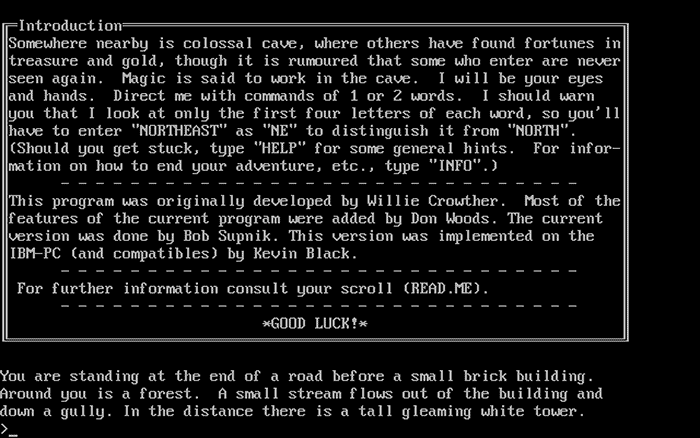
Before Rogue itself even existed, this interactive fiction game was developed to run on the PDP-10 mainframes of the late 1970s. It was not strictly Roguelike, but it’s often considered a precursor of the genre, owing to its mysterious setting and its marked inclination towards adventure and exploration.
Unlike other games that are more properly defined as Roguelike, however, there is no visual map: the whole game is described with words like a book, though some later versions included very simple bitmap images that contributed to creating the right atmosphere. It’s also called just “adventure” or “advent”, from the command name used to launch it.
Where to play it: Colossal Cave Adventure’s browser version on Mike Arnautov’s website.
2. Rogue
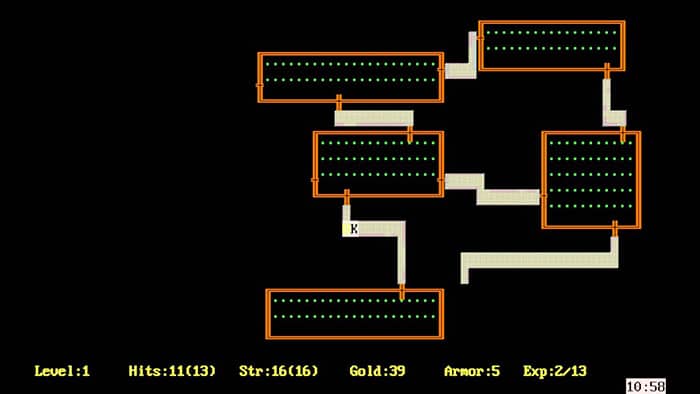
Yes, one of the best Roguelike games is the original—Rogue, the one where it all began. Probably a little weird for today’s standard, its “graphics” are really just boxes and symbols drawn using ASCII in a terminal, though subsequent versions added actual images, albeit simple.
It had such an impact that many Linux distributions and BSD versions still include an open-source variant, and at some point a few hackers even wrote software to have the computer beat the game automatically. Remember, each playthrough is different, so that’s quite a feat in itself!
Where to play it: Rogue’s browser version at the Internet Archive.
3. NetHack
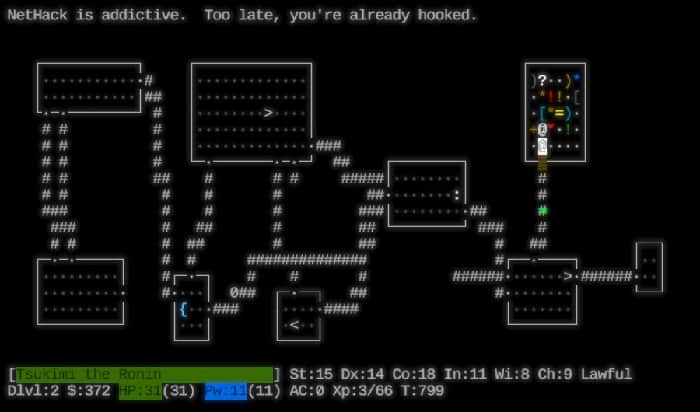
This is one of the first games that considerably expanded the original Rogue. Not only the player has to choose a race and class, but the environment itself is much richer and broader than both Rogue and the original Hack, upon which it is based.
It is realistic, in its own way, because odd things can happen: you may throw a boomerang, miss your target, and have it kill you on the way back! It’s still considered one of the best Roguelike games to this day, and it’s still widely played.
Where to play it: NetHack’s browser version at Alt.org.
4. Moria
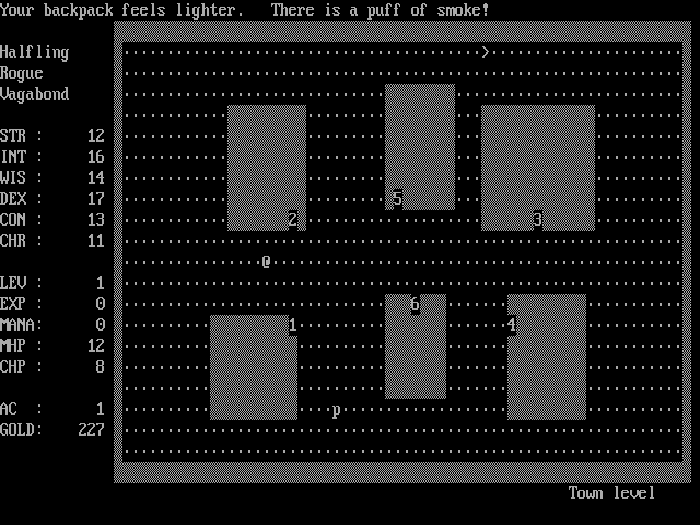
Properly entitled “The Dungeons of Moria”, its name immediately gives away that it’s set in a specific location of the Middle Earth universe devised by J.R.R. Tolkien for his Lord of the Rings saga. For those unfamiliar — how dare you! — Moria is a huge underground city inhabited by dwarves.
The final goal of the game, not surprisingly, is to kill a balrog that occupies one of the deepest levels of the dungeon. The game is clearly reminiscent of D&D, with lots of parameters for the player’s character that shape the progress of the game itself.
Where to play it: Moria’s browser version at the Internet Archive or Moria’s browser version at Umoria.org.
5. Angband
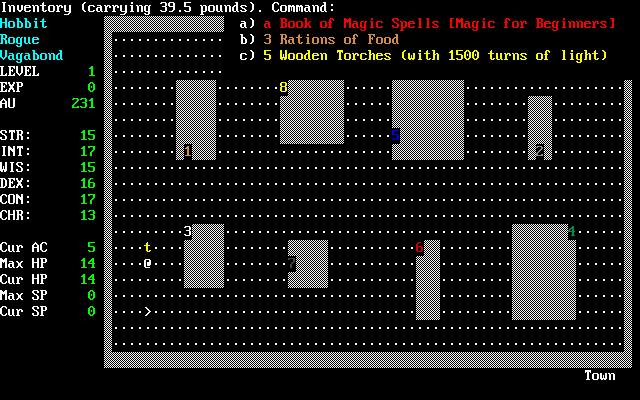
A fork of Moria, also set in the same Middle-Earth universe by J.R.R. Tolkien. However, in this case, the exact location is the fortress of Angband, and the final boss is Morgoth. It’s one of the hardest games in its category, and while none of them can really be played casually, Angband, in particular, requires the player to be very careful about how in-game objects are used in order to get through each level.
Many consider this to be one of the best Roguelike games, due to the sheer difficulty of reaching the end. That also makes it one of the most rewarding to beat!
Where to play it: Angband’s official site for Windows and Mac.
6. Tales of Maj’Eyal
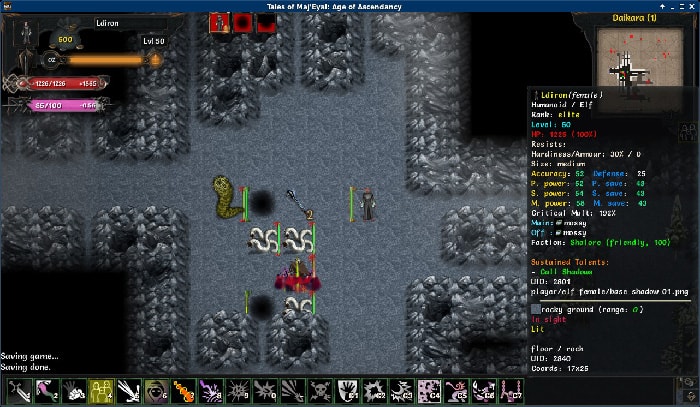
Finally a game with some graphics, despite its long history that can be traced back to Angband. It even lets you use a mouse! The world of Eyal (hence the name) is much bigger than any of the ones found in older Roguelike games, and the system of resources and skills is quite complex. This can be daunting at first, especially when coupled with the many available side quests
Thankfully there are multiple difficulty settings available, and that allows even newbies to ease into the genre. Despite being a single-player game, users can sign up to a central server to save their stats and chat with other players.
Where to play it: Tales of Maj’Eyal on Steam for Windows and Mac, or Tales of Maj’Eyal’s official site for Linux.
7. Mystery Dungeon (series)
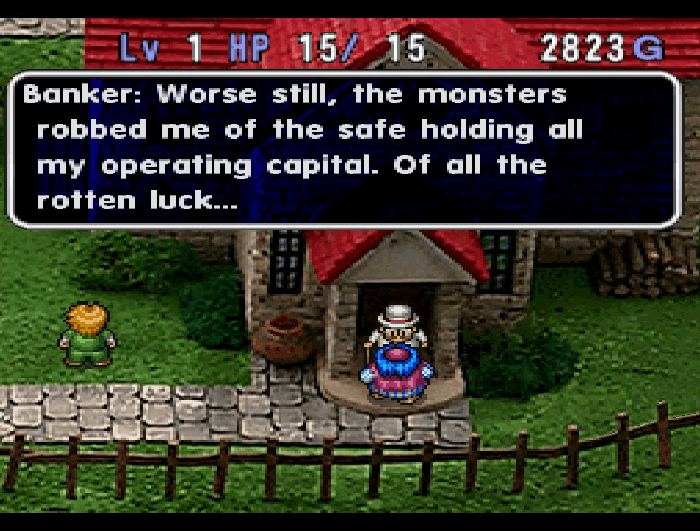
Not a single game, but rather a bundle of series and spinoffs — Dragon Quest, Shiren the Wanderer, Chocobo, Pokémon, Etrian Odyssey, plus a few spare ones — released over the course of several decades and gaming systems: some go as far back as the Super Famicom, aka Nintendo NES!
While the games differ considerably among them and describing them all would be impossible, they mostly include a slightly simplified approach, such as death not being necessarily permanent (or at least allowing for systems to carry part of the inventory over).
The environment can also be quite different and less gloomy than a traditional Roguelike game, which likely makes these appealing to the younger generations.
Where to play it: Various, including Windows, Android, iOS, Nintendo Switch, and older Nintendo platforms.
8. Diablo
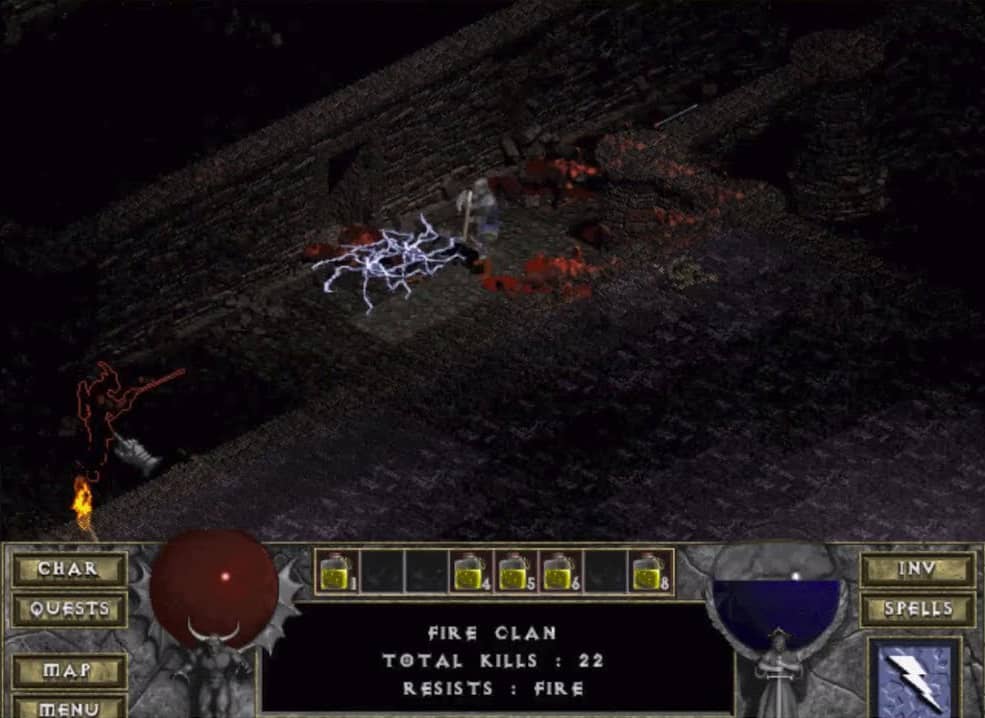
Purists may turn up their noses at seeing Diablos in this list and, well, they sort of have a point. Yet others will vocally hail it as one of the best Roguelike games, and leaving it out would have been unfair.
After all, Diablo does have a lot in common with other Roguelike games, such as procedurally generated levels, a penchant for combat, a gloomy setting, many items to use throughout the levels, and so on. The main difference is it is played in real-time, rather than in turns.
Whether this is good or bad depends on the gamer’s tastes: it takes away from the joy of planning a few moves ahead but makes the game much more accessible to casual players. That’s not to say that beating Diablo is easy — it is not, and neither are its sequels.
Where to play it: Playstation, Windows, and Mac. For a more recent experience, Diablo III is also available for Playstation 3 and 4, Xbox 360 and One, and Nintendo Switch.
9. Strange Adventures in Infinite Space
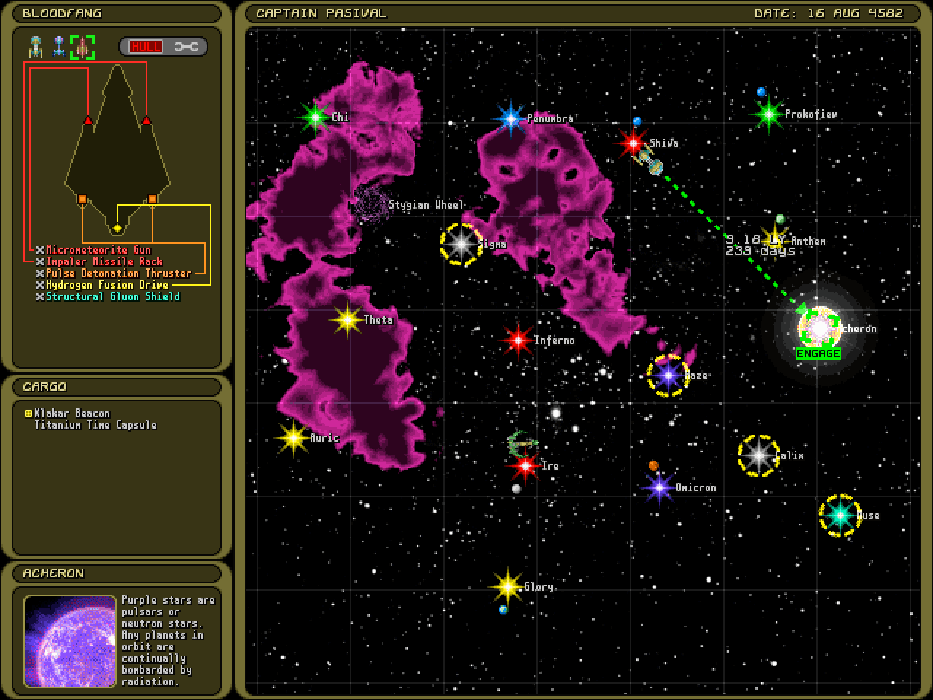
Who said that these dungeons have to be underground? Here’s a game set in space! Despite the wild difference in how it may feel compared to more traditional Roguelike games (at first sight, you may find that it reminds you of the older Elite games), Strange Adventures in Infinite Space still has all the basics and certainly doesn’t disappoint.
Of course, it may feel a little weird to use Impaler Missile Racks (yes, those really exist in the game) instead of torches, but you do what you gotta do, alright?
Where to play it: Stranger Adventures in Infinite Space’s official site for Windows, Mac, and Linux.
10. FTL: Faster Than Light
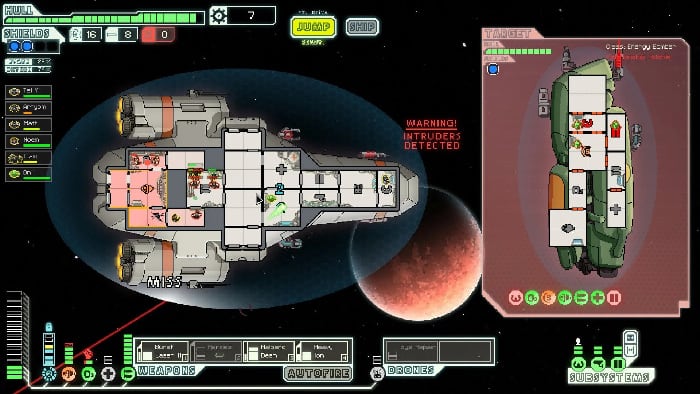
Another game set in space, this time with the final goal of delivering an important message to the allies. Easy? Of course not. Doing so requires going through various procedurally generated levels. These contain a fair share of enemies and complications—you don’t even know where the next jump point will lead you to while playing.
Timing is mixed: while combat is in real-time, the game can be paused at will. It’s unique in its own way, in that the player’s ship is what’s on-screen most of the time, with a detailed look at the equipment and the crew. Bonus: the soundtrack on FTL is amazing.
Where to play it: FTL: Faster than Light on Steam for Windows and Mac.
11. Spelunky
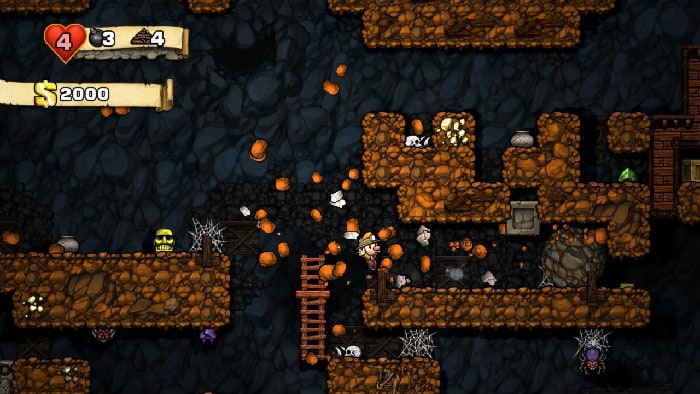
Going back to the more traditional concept of exploring the underground, Spelunky takes the whole ordeal quite literally, as the character even wears a miner’s hat (and features a mysteriously red nose). It’s definitely more casual than other games in this list, and you would be forgiven if it reminded you of Sonic or Super Mario at a glance, as that’s the vibe that the developers went with.
It even does away with convoluted tutorials by strategically placing background explainers on new actions wherever they’re needed. One of the most amusing parts is the fairly unorthodox approach to handling damsels in distress. This is easily one of the best Roguelike games on Steam—or at least one of the funniest.
Where to play it: Spelunky on Steam for Windows.
12. The Binding of Isaac
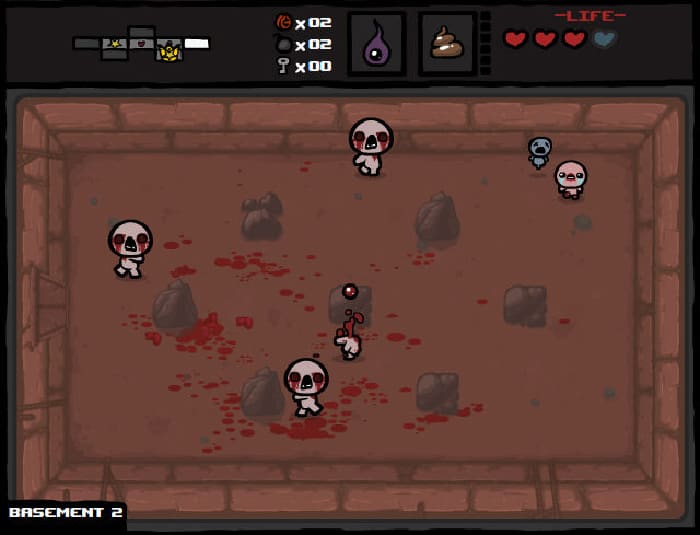
One of the more traditional-looking among the most recent games in the category, which gets its name from the famous biblical story of God testing Abraham’s faith by asking him to kill his own son, Isaac. Here, the protagonist has to deal with his mother and runs away into the basement (yes, that’s quite odd). He then has to deal with various kinds of monsters hiding in there.
Each level consists of multiple rooms, and permanent death is delayed by having multiple lives to deplete first. Don’t be too hung up on the biblical foundation, however. The game involves a wide array of items, from tears used as bullets to tarot cards acting as power-ups.
Where to play it: The Binding of Isaac on Steam or The Binding of Isaac: Rebirth on Steam, both for Windows, Mac, and Linux.
13. Rogue Legacy
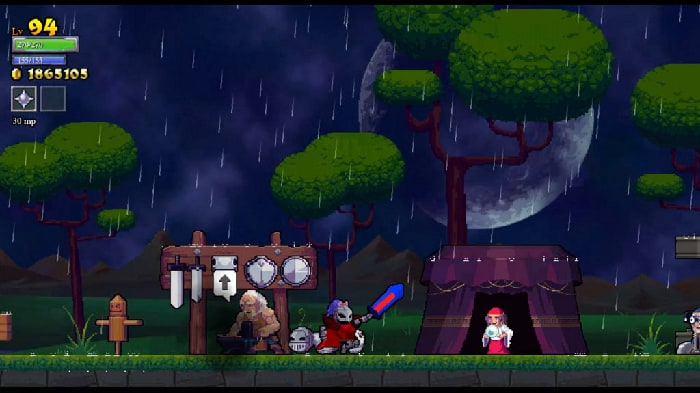
Another casual approach to the genre (despite the name) is Rogue Legacy. It’s a bit of a misleading name, as it could arguably be considered a platform game. This puts it alongside other platformers like Super Mario or Sonic.
Still, there are some features to get stuck into that make it more than ‘just’ a platformer. These include spells to cast, items to use, quests to accomplish, and stats to keep an eye on. One interesting gameplay feature is that permadeath is replaced by switching to playing an heir of the original character.
The downside? Your character heirs may or may not have some kind of ‘special traits’ that impact on gameplay. These can include dyslexia, color blindness, and even irritable bowel syndrome. Oh, dear.
Where to play it: Rogue Legacy on Steam for Windows, Mac, and Linux.
14. Darkest Dungeon
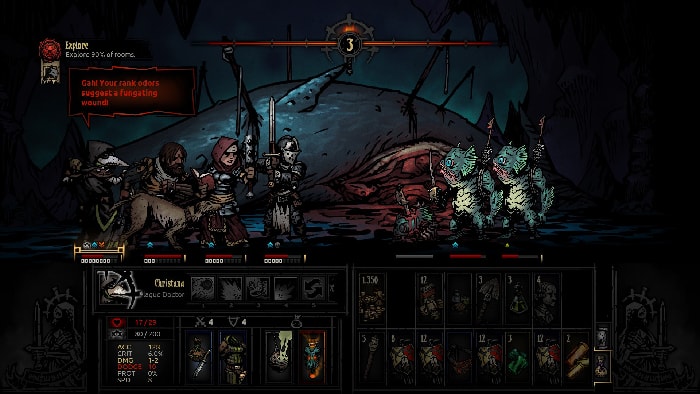
This is one of the games that put a special spin on the main ideas of Roguelike games. Darkest Dungeon mixes turn-based combat phases and real-time free movement, with a stress meter that affects the character’s skills and chances.
The graphics are quite gloomy, but then again this is probably the game with the darkest storyline here. If you do reach the ending, you’ll be rewarded with some pretty deep food for thought. No spoilers, but it’s certainly an interesting twist, and one to watch out for.
And if that wasn’t enough, a sequel is being developed right now—keep your eyes peeled for that.
Where to play it: Darkest Dungeon on Steam for Windows, Mac, and Linux.
15. Slay the Spire
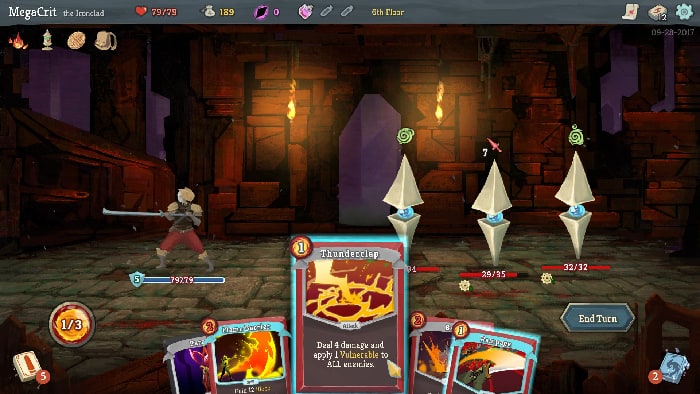
Reading through this list, you’re probably starting to spot a pattern. Most modern Roguelike games often take their own special approach to the genre and Slay the Spire is no different. It diverges considerably from the original Rogue by adding a card system into the mix.
Similar to other card games, the decks can be used for attack, defense, increasing skills, affecting enemies, and more. The cards can be bought, traded, or looted throughout the game.
This makes STS one of the most interesting games of the bunch. It may appeal to lovers of both Roguelike games and card-based games who may be unaware of the nuances of the other genre—it’s certainly worth a try.
Where to play it: Slay the Spire on Steam for Windows, Mac, and Linux.
16. Dead Cells
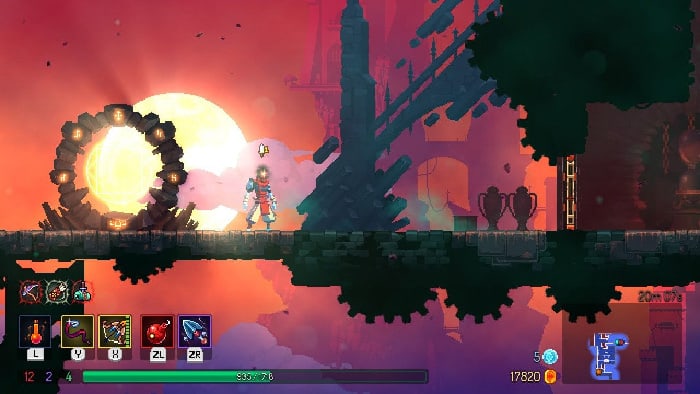
If you’re looking for a game that mixes gameplay elements from Rogue, Metroid, and Castlevania, you’ll need to give Dead Cells a try. The game itself has a pretty simple plot: you control a prisoner in some dungeon with lots of monsters and have to make your way out.
Familiar, yes, but with a twist: you control the prisoner as some kind of ‘green slimy thing’ (you can quote us on that) that acts as a brain for dead people. What makes Dead Cells really interesting is the gameplay design. It’s a fast-paced platformer that forces you to think quickly, but you need to think on your feet, with multiple levels to get through and items to grab.
Gone is the chess-like, almost surgical approach of the original Rogue. With Dead Cells, life meets death in the blink of an eye. You have to aggressively fight your way through the dungeons to stay alive—doesn’t that sound fun?
Where to play it: Dead Cells on Steam for Windows, Mac, and Linux.
The Best Roguelike Games Available Today
With so many different styles and approaches, plenty of games claim to be the best Roguelike game. The honest answer, however, is no single game is worthy of the crown. They all vary, with new features, elements, and stories to entertain or frustrate gamers.
Indeed, Rogue and its heirs are games that people either love or hate. While more recent games tend to allow for a more casual approach, they generally require more concentration. You’ll need to invest serious gameplay hours into these games to become true pros, which requires a lot of dedication.
Still, many of the newer and slightly more approachable games are available on multiple platforms at reasonable prices. You may be just a click away from falling in love with Rogue-style games some 40 years on. After all, we can all be heroes for a while!

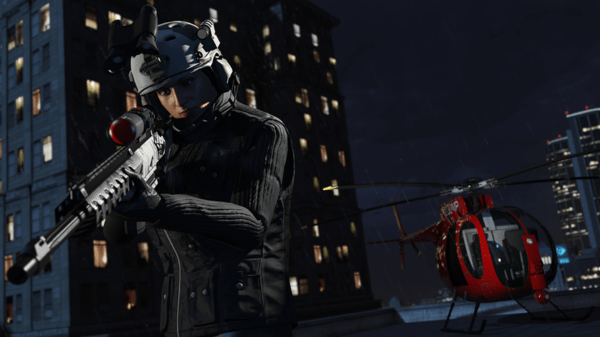
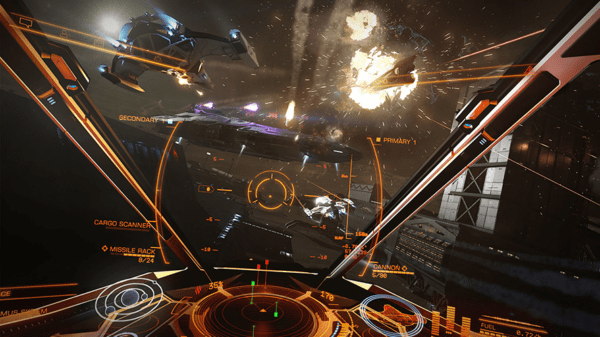


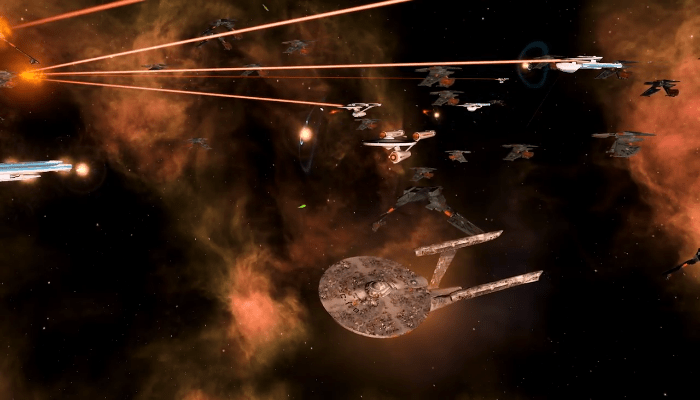
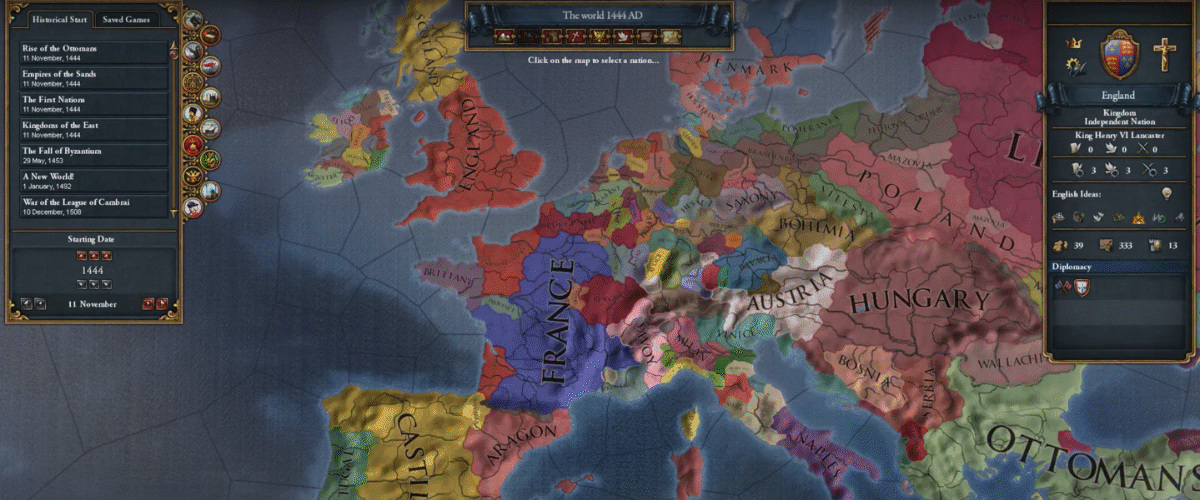
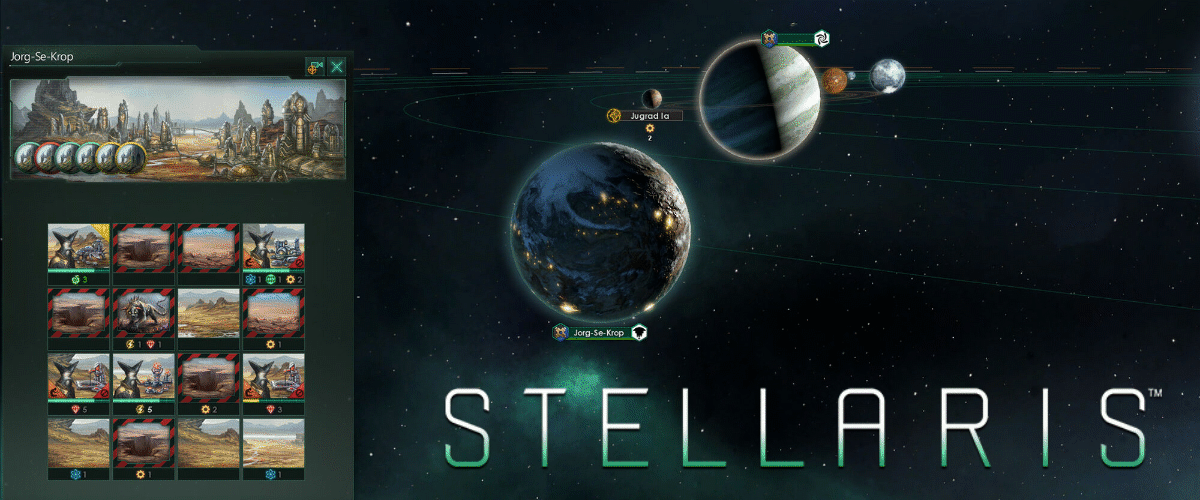
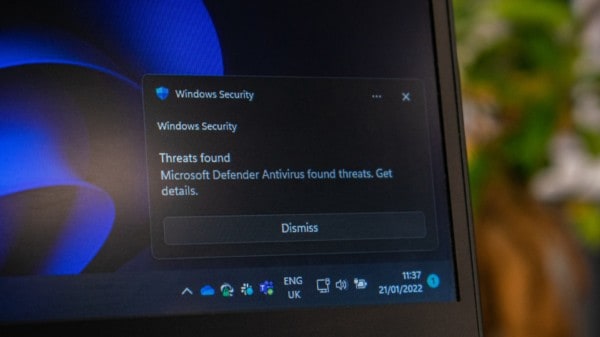
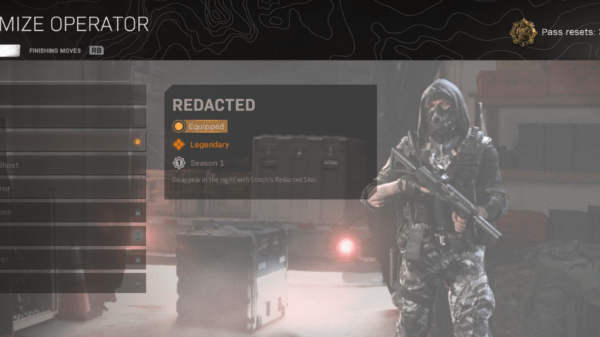
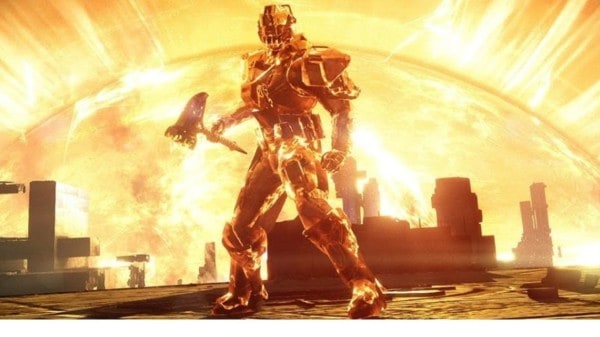
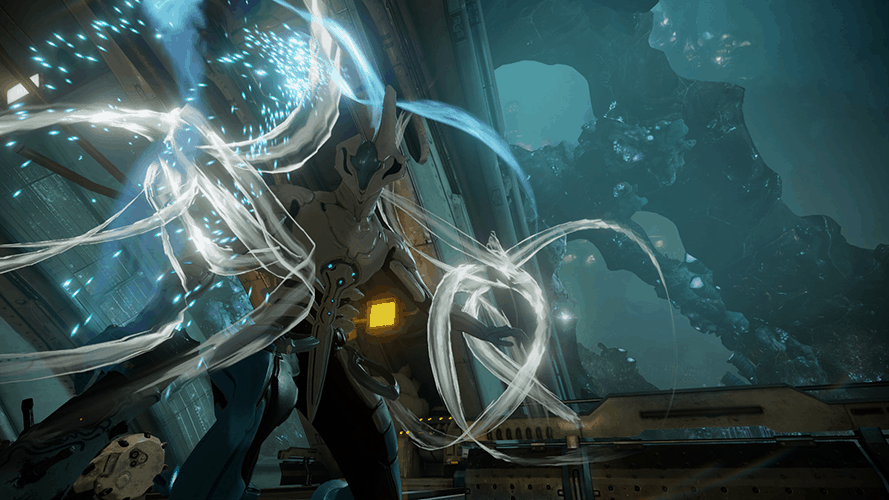
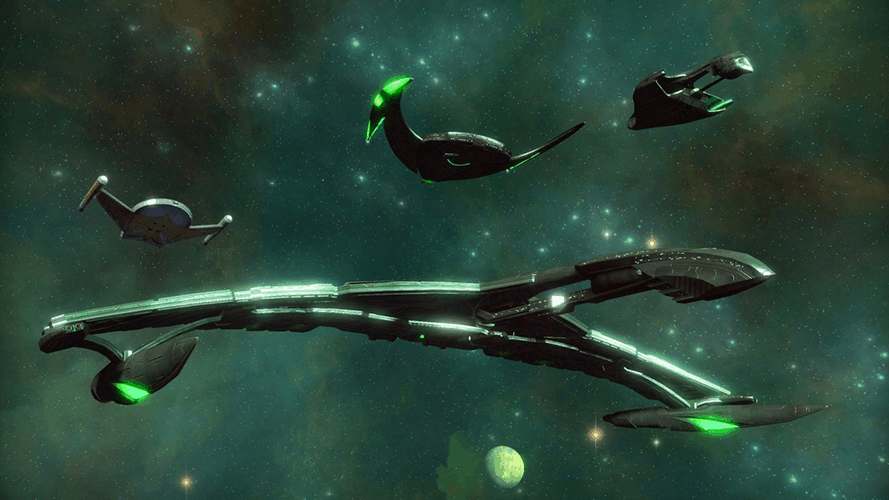
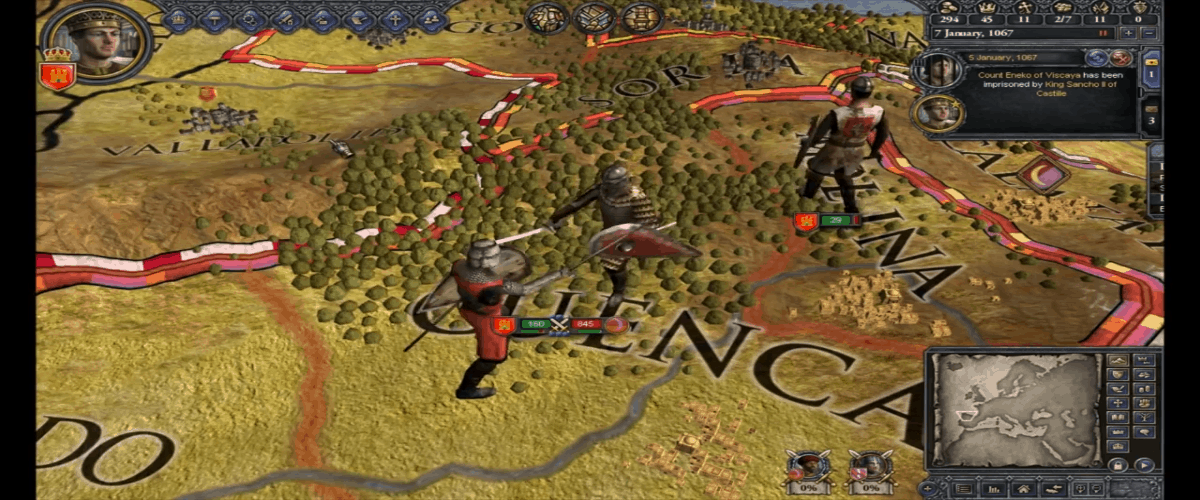
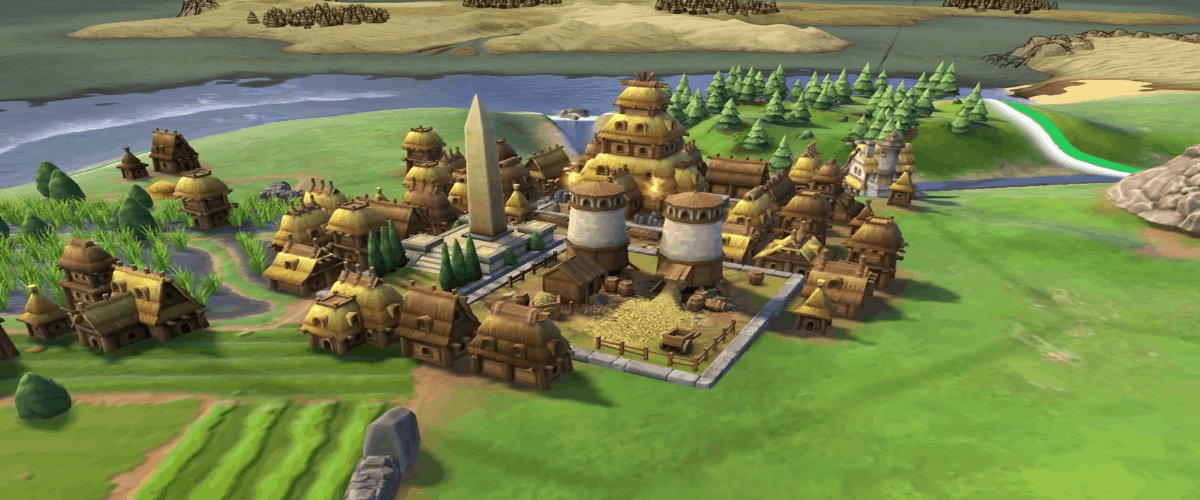

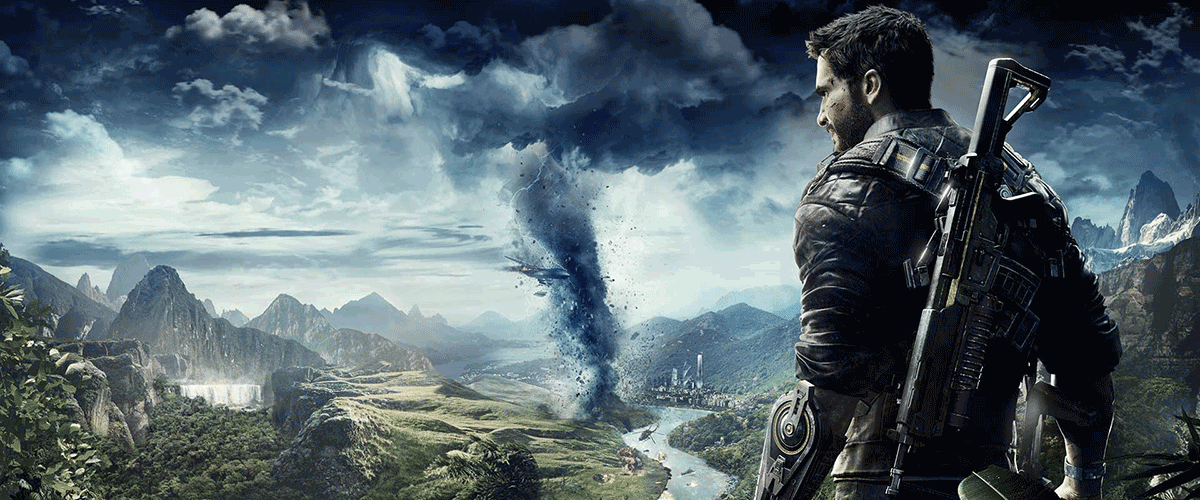

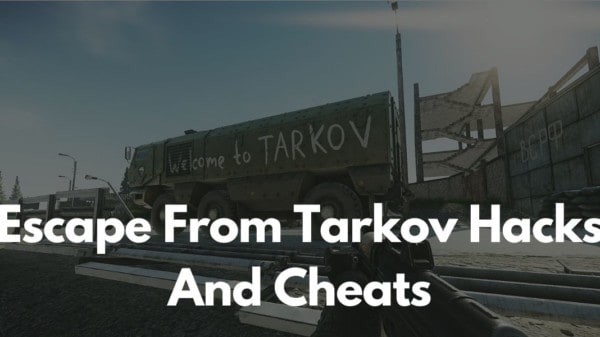
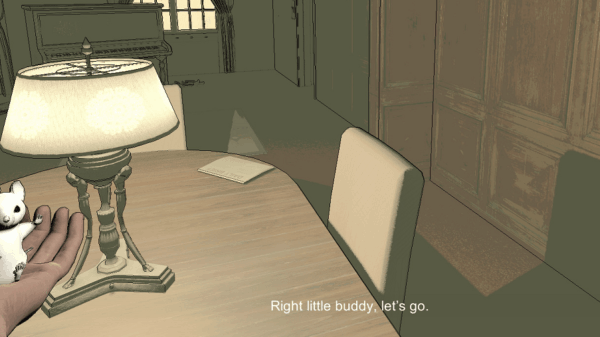
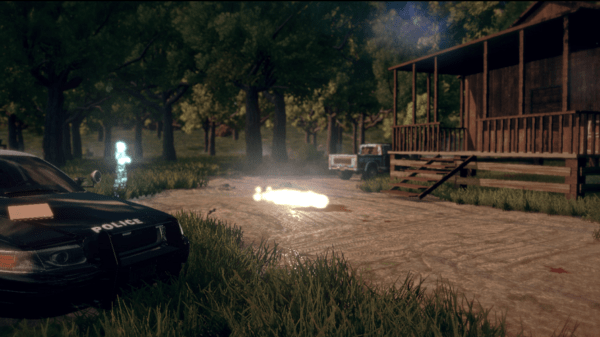

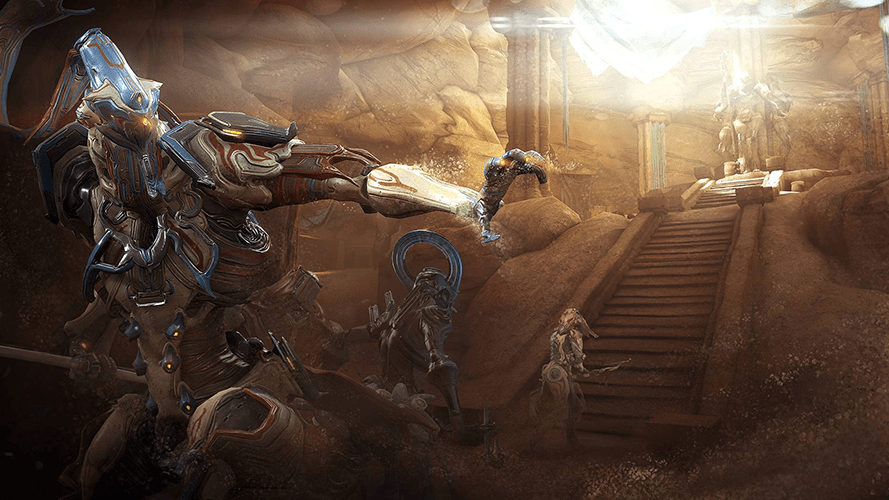
You must be logged in to post a comment Login